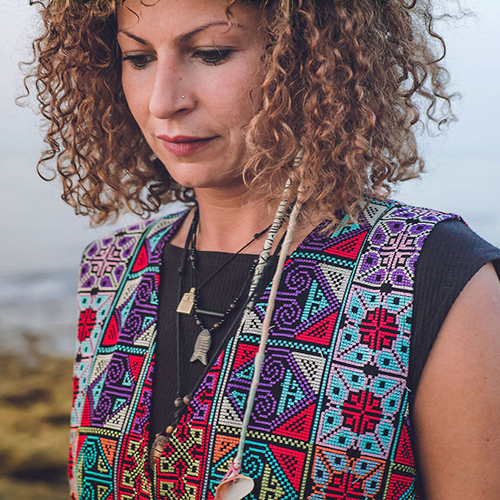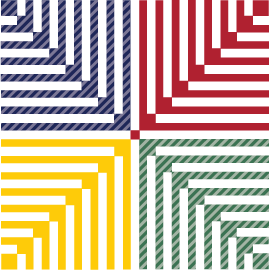

Dina Naser’s poignant documentary Tiny Souls (2019, 86 min) explores the harsh realities of war and the strength of human resilience.
Marwa and her younger sister Ayah and brother Mahmoud live in the Zaatari refugee camp in Jordan. They fled from Syria around 2012 with their mother and older brothers and sisters. With Naser, the children speak matter-of-factly about the horrors they experienced in Syria, but remain mostly positive.
Naser gives us a close-up of the refugee experience. The four years of filming these children demonstrates both the unique and universal human experiences. For example, even in the complicated and transitory environment of a refugee camp, Marwa grows into a young woman before our eyes and we see her experience her first romantic crush.
We spoke with Naser about shooting Tiny Souls.


BPFF: How did you find this Syrian family?
DN: I met Marwa and her family when I first visited the camp in 2012. My initial intent was to talk to adults, but they were very vulnerable and scared. They knew that if the [Syrian] regime saw them, it could track them. They also thought that the camp was a temporary situation, and they would go back to Syria soon. Nobody imagined it would be more than 10 years.
I found myself talking with the kids in the camp. They were very playful. So I switched on my camera and started doing short interviews. This is how I met Marwa and her family. I realized how much I felt connected to her, and I wanted to know more about them. I never thought I would end up filming them for four years.
I started visiting whenever I got permission to enter the camp. That in itself was a very hard and complicated process. They are a bit easier on foreign crews. But with someone local, and a woman, and no official letter of support, it was tough.
Plus, Jordan is a country where cinema is still limited. Not a lot of people work in independent cinema. So it was very hard to explain what I was doing.
BPFF: What draws you to filmmaking? What do you think film can do that other art forms cannot?
DN: Film allows me to express myself and reflect on the world I live in. Cinema is a strong tool to create change through awareness.
BPFF: How much do you think you grew professionally by making this film?
DN: I learned so much. I had to record and do everything by myself. For example, I had so many technical problems because I was not managing very well alone. And I had to fix a lot of sound and image problems in post-production.It was almost three years of post-production.It was an intense process on so many different levels—production, but also psychologically.
It’s my first film, and I had to pay so many prices to be able to learn so many things. Maybe I learned the hard way, but I feel really blessed that I went through this. I better understand the world we live in. I learned how to really find the best narrative in telling a story and understand the context and really the circumstance.
It was the hardest thing that I have ever done so far in my life. Being in the camp was one of the toughest situations I had to deal with mentally, emotionally, and physically. My source of power was Marwa, Ahya, and Mahmoud. They are the real fighters, and they are the reason why I continued.
BPFF: What would you recommend to other filmmakers doing documentary projects about tough subjects like this?
DN: I think the most important thing is to believe in what you do and be true to the story. It’s not about finding the right funding, or the right equipment, or the right crew. If you are speaking the truth and you’re true to yourself, your message will reach a wider audience, regardless of the quality of the image, or the sound, or how many big names you bring to the table. I think the love you put in any project will break through all these fake barriers and it will reach the right people.
BPFF: What projects are you working on now?
DN: I’m working on a short fiction film about a deaf girl who fails to communicate a painful incident to her mother. She has to carry it on her own for the rest of her life.
BPFF: Good luck with it, and thanks for your time today.
Tiny Souls screens online October 16-25. View the full festival program and buy tickets here.

